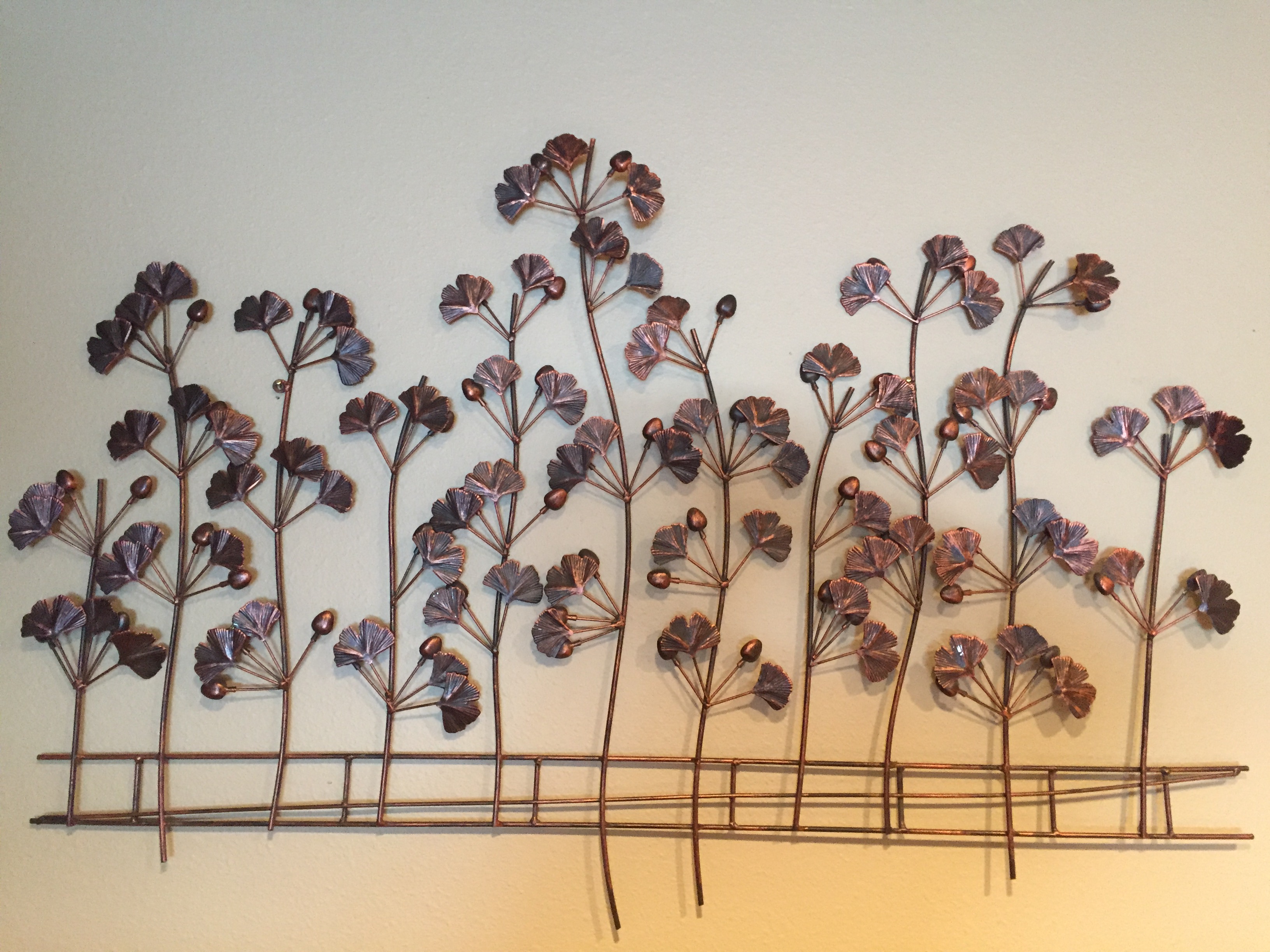A few weeks ago, I thumbed through some of my older files in a search for something completely unrelated to Sept. 11, 2001. I found this collection of musings I wrote about two weeks after the terrorist attacks.
I was a newspaper editor in Corpus Christi, Texas, at the time, and most of the newspaper’s staff worked for two weeks straight after 9/11, without a break, to make sense of the tragedy for our readers and help them prepare for what would follow. It was some of the best work of my journalism career.
There is nothing special about what was expressed below. The words and phrases capture the kind of raw emotions of fear, sadness and confusion that I’m sure many others felt. “There is something there in my human heart,” I unabashedly admitted to myself, “something sad, silent, burning and heavy that will always be with me.” The musings may not make complete sense, and they may not be the most eloquent thoughts I ever put down on paper.
But they were honest, heartfelt and hopeful … and blissfully ignorant of what was to come over the next two decades.
This was written sometime in late September 2001. I was 27 years old.
It’s been over two weeks since the terrorist attacks took place, and yet it feels like a year, with barely any memory of the 27 years of my life that preceded Sept. 11’s images of burning skyscrapers, screaming New Yorkers, scorched Pentagon offices, and exhausted newscasters.
The last several days since have seen my anger misdirected at the ones I love the most, depression, restlessness, sleeplessness, and a plethora of other emotional disruptions. These enduring problems have brought me here, looking for some sort of alleviation or answer through what I know best: the written word.
I’m linked to the rest of the world through my personal anguish over what took place in New York, Washington, DC, and Pennsylvania. Yet I think I endured the tragedies in a way a comparatively select few in our nation could appreciate. From a distance. From a place of safety. Immersed in my own pain and anguish. Certainly nothing as intense as the men and women who lost loved ones or saw them injured. But there is something there in my human heart — something sad, silent, burning and heavy that will always be with me.
I’m a news copy editor, one of about a dozen intelligent and well-read professionals who help to produce this newspaper every evening of the year. I edit articles written by our reporters and by reporters from various wire services from across the country. I’m also a page designer, which means I place the articles on the pages, along with most of their accompanying pictures. It’s quite easy, and the richness of the river of information that flows past and through me on an hourly basis successfully seduces me back to my desk every afternoon.
But the morning of Tuesday, Sept. 11, 2001, was a watershed moment for me.
I joined the newsroom two years ago the way a wanna-be cop hangs out at cop bars — to feel the pulse of the news cycles, to sense waves of energy as a story builds and reporters jump into action, to listen to the everlasting debates between what’s legitimate news and what’s simply tabloid garbage. It’s so much fun. I never considered myself as intelligent as my colleagues but I eventually felt acceptably proficient at what copy editors do, and I suppose I’ve managed to make a decent contribution to the newspaper.
What I saw take place in this newsroom was an astounding example of what reporters and my fellow copy editors are capable of. It was, as D-Day was once described, the Day of Days. Three incredible newspapers — two extras and a special edition — were produced in one day, something accomplished by only a half-dozen other newspapers in the country. We all worked to cover the story of our lives, trying to explain the terrorist attacks to the public as we privately tried to explain it to ourselves. I was never more proud to count myself among these incredible men and women.
Most of us worked on the weekends, so my days off were Tuesday and Wednesday. I awoke that morning feeling happy. It had been a boring and quiet work week, and I was ready for two days of relaxation. I reached over to turn on my nightstand alarm clock radio. As always, it was tuned to NPR’s “Morning Edition.” I heard the host, Bob Edwards, announce that a plane had struck one of the towers at the World Trade Center. He said that smoke billowed from the building.
I remember selfishly thinking, “Well, that’s interesting. Perhaps the wire editor or Page One editor will do something good with this. Thank God I’m off today.”
But my ever-curious semi-journalist ears were pricked up, so I switched on the TV – permanently set on CNN – to see what I imagined would be a little single-prop plane that perhaps nicked the tip of one of its wings on one of the towers, perhaps being pulled out of the Hudson. But that was not what I saw.
The moment
The phone rang minutes later. It was the newspaper’s metro editor. He said an extra edition was going to be published, that everyone was being called in, that this situation was major. I said I would be there as soon as I could.
“And there it was,” I thought. The moment I waited for yet never hoped for had finally arrived, a day in which the history books would never – could never — overlook. I could sense that strong, huge, great gears were beginning to turn, carrying me back to the heart and mind of this great entity where I held a seat and played a role. This was an emergency, and we were going to be there to meet it head on, turning this massive ship towards the emergency, to begin as carefully yet as quickly as possible to piece together a first draft of history. It sounds so cliché, but it still seems so true.
This was the essence of what I always thought a newspaper did, and yet even with the entrance into a new century, the impeachment of a president or the closest presidential election in history, it was not enough of a challenge to our capacity to marshal our creative and intellectual forces. History had thrown a huge puzzle up into the air, and it was up to me and to us to piece enough of it together to make sense of it to ourselves before making sense of it to our readers.
But the true significance of the emergency did not dawn on me until I arrived at the Caller-Times. The second plane had struck the second tower, the Pentagon was hit, and one of the towers had collapsed. The second one collapsed soon afterwards. I never saw so many of my co-workers at the same time before, everyone tense and talkative, busily preparing for something, printing out the first pictures from the Associated Press and tapping away at keyboards.
The editors and designers from the Features department — they worked regular 9-to-5 hours — had been moved over from their offices down the hall and into the newsroom to start collecting photos and the initial stories coming off the news wires. They sat at my desk and at my colleagues’ desks. So most everyone who arrived after me was displaced. They moved over to share desks with the sports editors and designers, who occupied the dozen or so cubicles next to ours. It seemed more people were standing than sitting.
As I walked through the melee, the editor of the newspaper’s Sunday edition — the senior editor/designer among us — calmly smiled at me. He looked relieved to see me. His hair was still wet from a shower that must have come as unexpectedly early as mine had. We were among the first of our news editing team to arrive. CNN was blaring from every television in the newsroom. Phones everywhere rang and rang.
The work
The executive editor — the newspaper’s supreme commander — gathered the reporters, editors, page designers and photographers for a quick briefing. Everyone looked nervous. Some took notes as she spoke. Others just stared at her or down at the ground. One seemed to have tears welling in her eyes. Another looked like he had been crying for a while. I was numb, not from fright or nervousness. I felt like I was bracing for some kind of impact, but now I think it was simply that I grimly anticipated that there were some long days and nights ahead. I don’t mean workload – I mean enduring a tremendous amount of work combined with the normal grieving process that I knew I would not allow myself to experience until the work was done … a process I’m experiencing now, with these words and thoughts.
The plan was ambitious. The editor wanted two extra editions printed before we began preparing the regular newspaper for Wed., Sept. 12. The first extra would be done by 2 p.m., the second only a few hours later, and then the real workday would begin. The newsroom jumped into action, meetings were held, the dummies for pages were distributed to designers, photos were selected, and the budgets (the master list of wire service and local stories we might use, along with their designated pages) were printed.
I had a simple peripheral role — as did many others — of designing a few inside pages. A few people worked on finding the right pictures and keeping track of who was using them. The executive editor and the Sunday editor who was relieved to see me worked together on what would appear on the front pages.
Information on the attacks continued to pour in, some of it reliable, some of it not. Most of the televisions were muted so their sound was no longer a distraction. The roaring hurricanes of fragmentary information, images, speculations, and so much more swirled through my mind. A rudimentary “news crawl” moved along the bottom of CNN’s screen, with some headlines predicting 10,000 fatalities, rumors of a bomb at the State Department, possible attacks in other cities. CNN showed the planes slamming into the towers over and over again. The deathly bright orange of the explosions, the people leaping from the upper floors, the horrifying straightforwardness of two of the world’s tallest buildings collapsing into ash, fire and smoke as a global audience watched … they played it over and over and over again.
There was no real time to mourn or try to really comprehend what was happening to New York City or Washington D.C. There was no real opportunity to sit back and contemplate what this would mean for the weakened economy or the missile defense initiative or even the social consciousness of my generation. Perhaps the only real concern in the back of my mind, aside from trying to finish those pages, was: Is this just the beginning? Are there more attacks coming? Immersed as I was in such an avalanche of information, both reliable and not, I suppose any emotional reaction — fear, sadness, anger — was not really allowed to surface, even as they boiled beneath the veneer of steady professionalism.
A brilliant, deadly light
As I write this, I think of my colleagues. They’re all tired now, most of them surely much more exhausted than me. Many seemed so burned out by the never-ending coverage, even though some semblance of normality seems to be returning. It’s like we were plunged into a dark tunnel since the attacks took place, piecing together the world around us with penlights.
Does anyone remember Connie Chung’s Gary Condit interview, HBO’s “Band of Brothers” series, or Madonna’s Drowned World tour? Does anyone care anymore? It’s our job to keep our little city informed of the world’s events. There was time when it was easy, when we had the luxury to debate the importance given to Andrea Yates or a spy plane lost in Chinese territory.
Naturally, I have as many questions as anyone else: Were the attacks part of a greater plan? Is Osama bin Laden truly the man behind the terrorism this time? Will Bush’s “war” take years to accomplish objectives that are not yet announced?
Ironically, with the resources and information provided by countless newspapers and news services at my fingertips, I have no better perspective than someone working on depositions at the courthouse, someone selling clothes at the mall, or someone begging for change on the seawall. The stories all ask the same questions, all chase the same sources, all come up with the same hollow predictions from unnamed sources.
When will we have all the answers? Are we on the verge of a third world war? How will this new fight change the United States? How will this new era change my generation as we grow into journalism’s leaders? How will this change me? Will we ever emerge from this dark tunnel? What awaits us in that brilliant, deadly light?
Two decades later, I wrote a shorter version of this remembrance as my contribution to Texas Public Radio’s collection of memories marking Sept. 11, 2021. You may read it here.





















You must be logged in to post a comment.